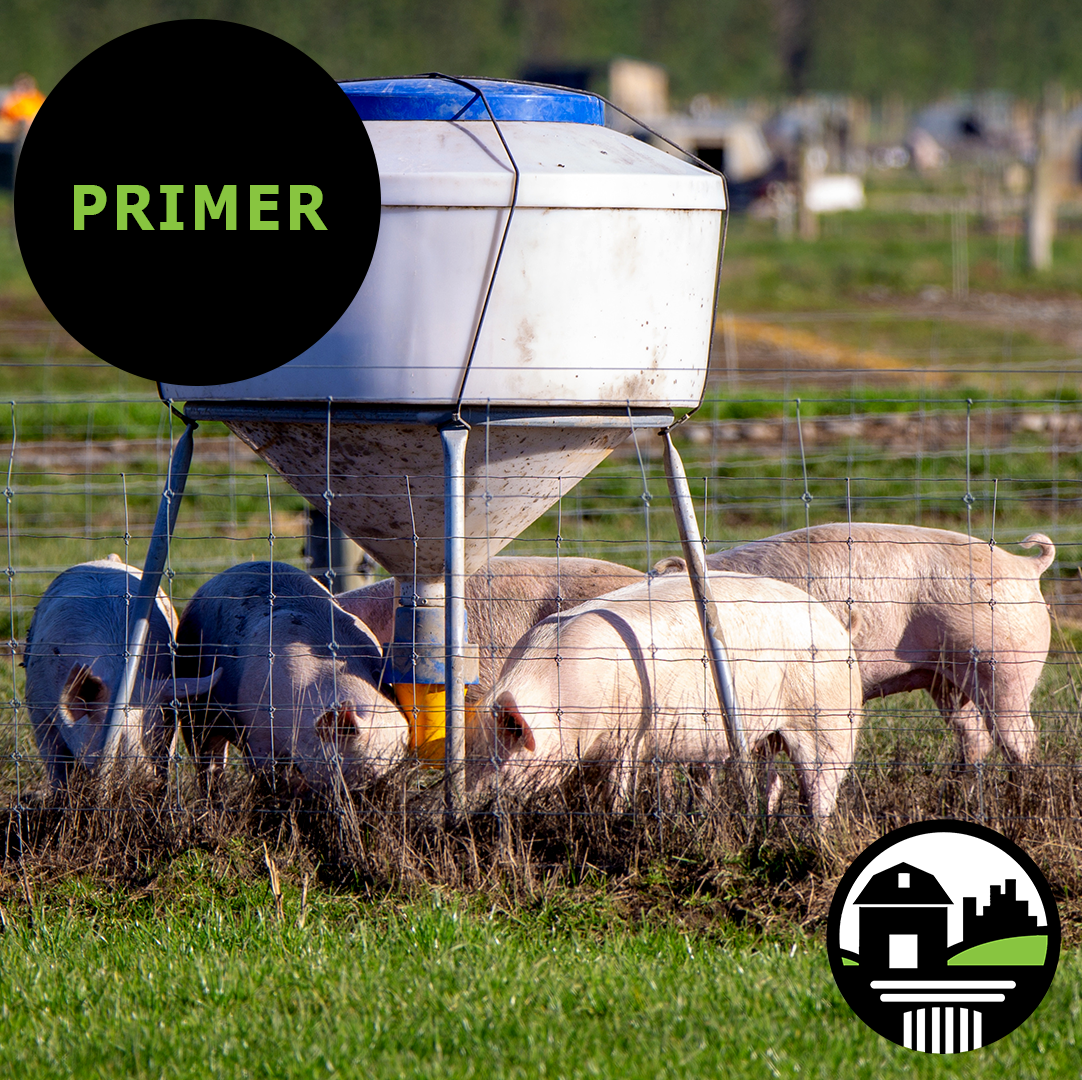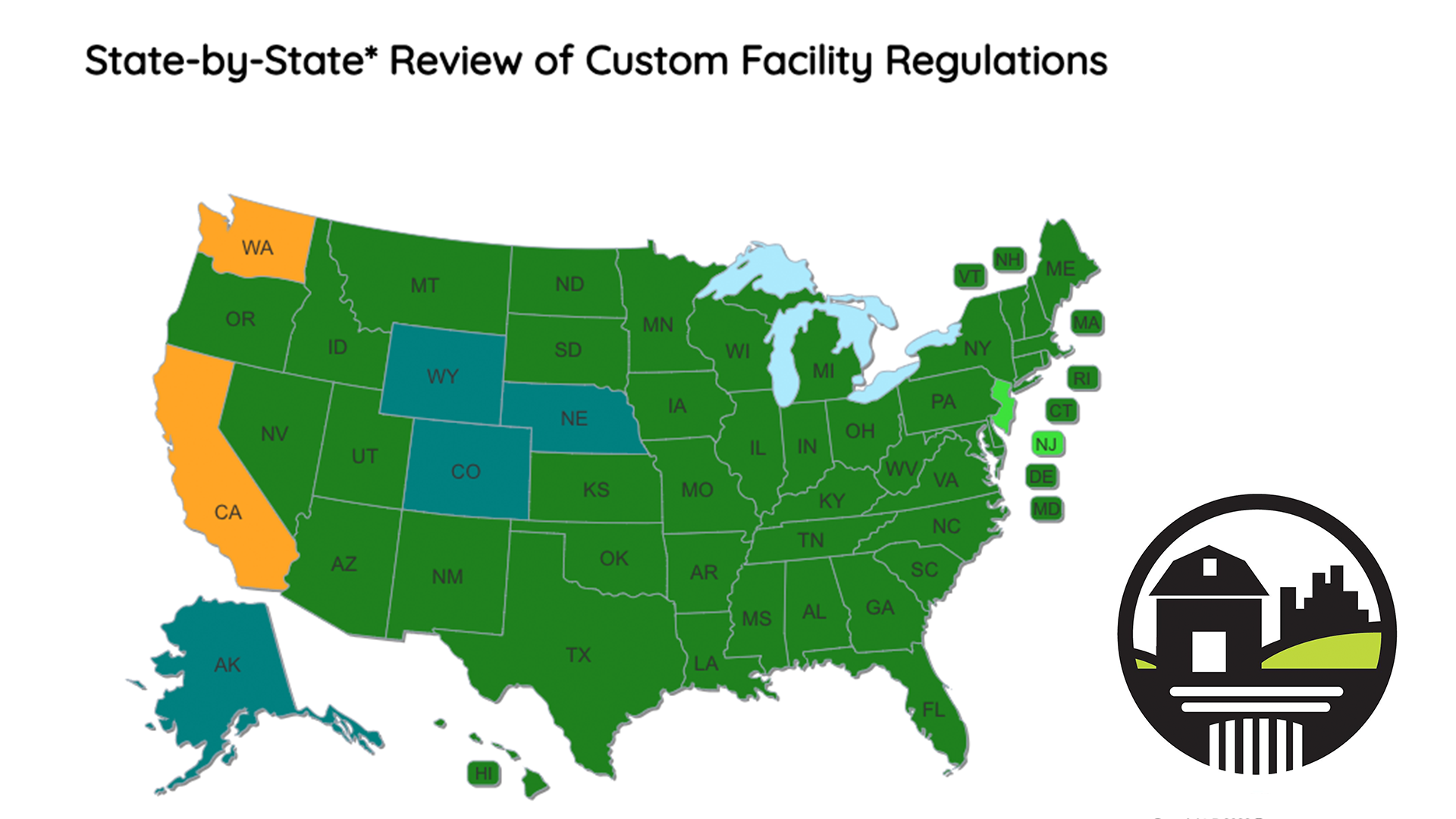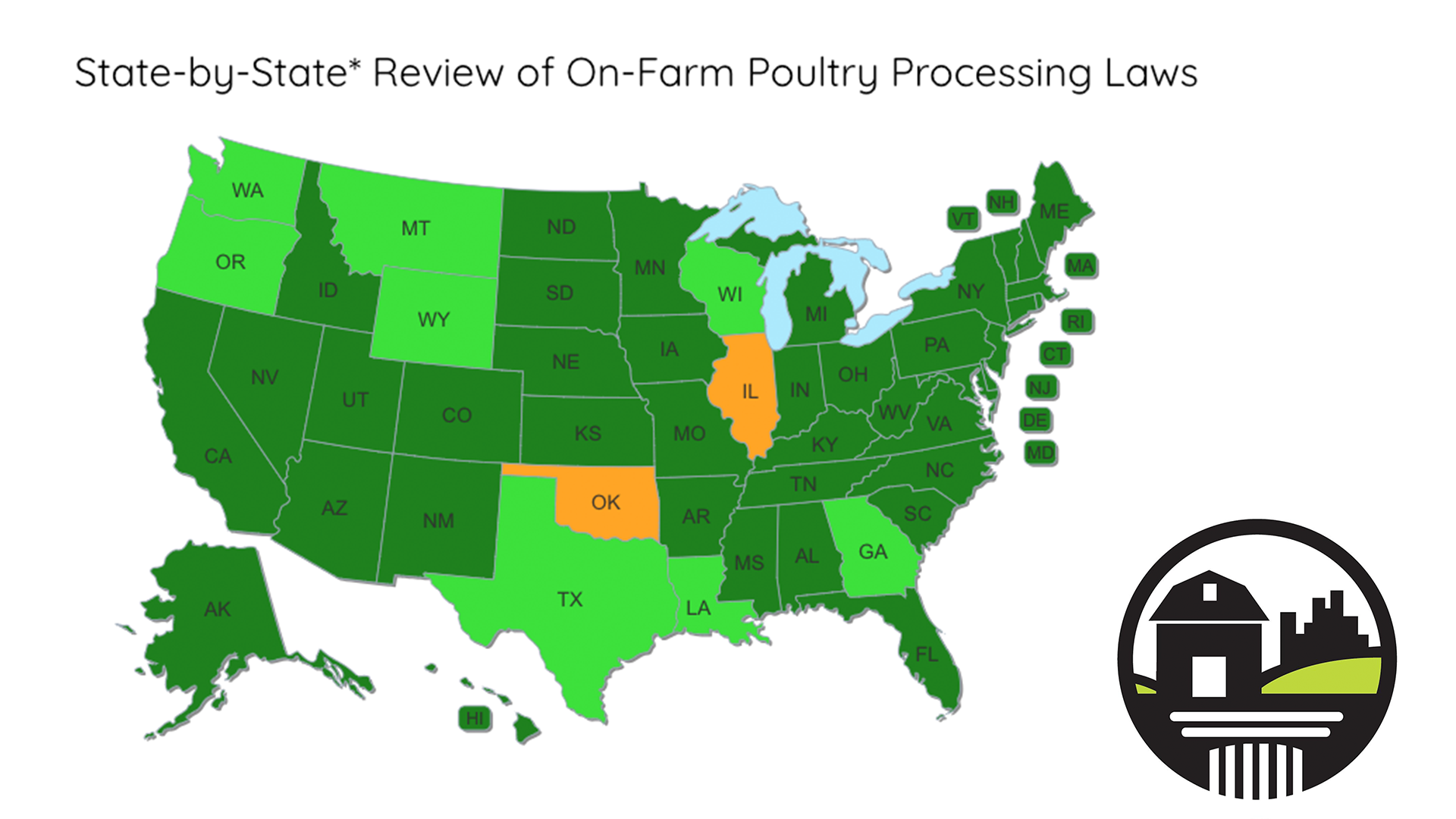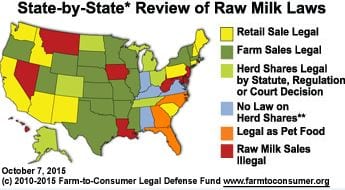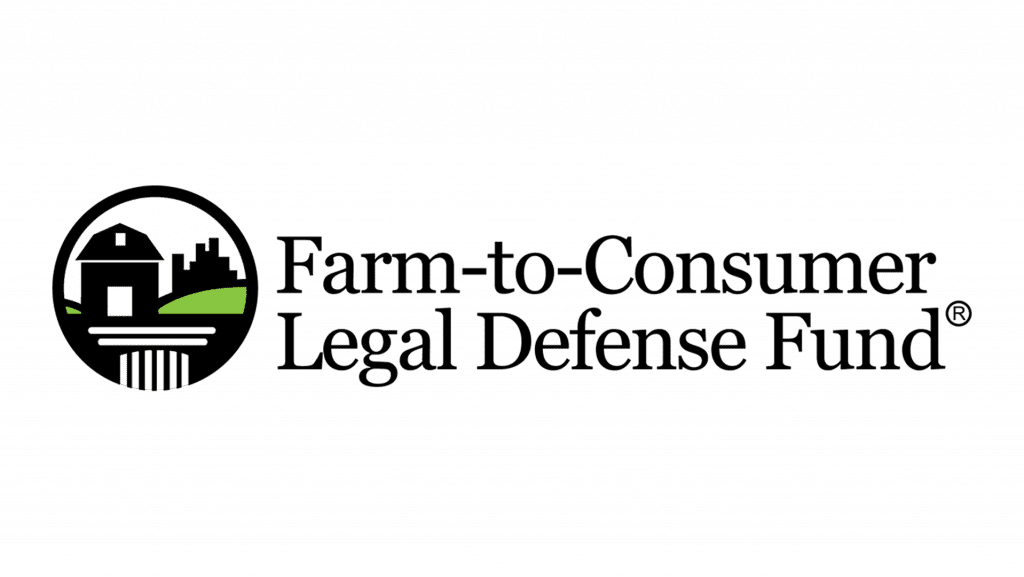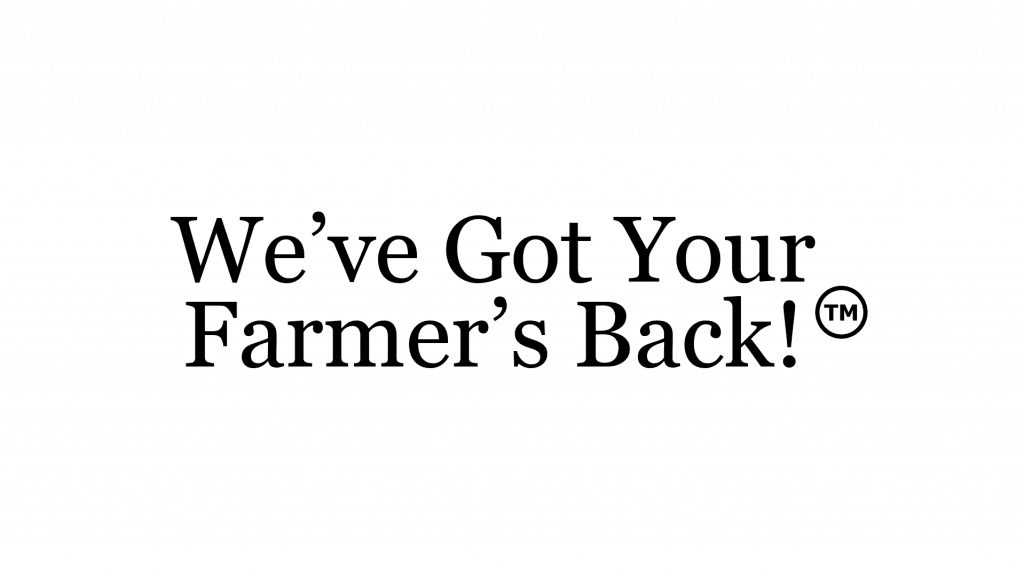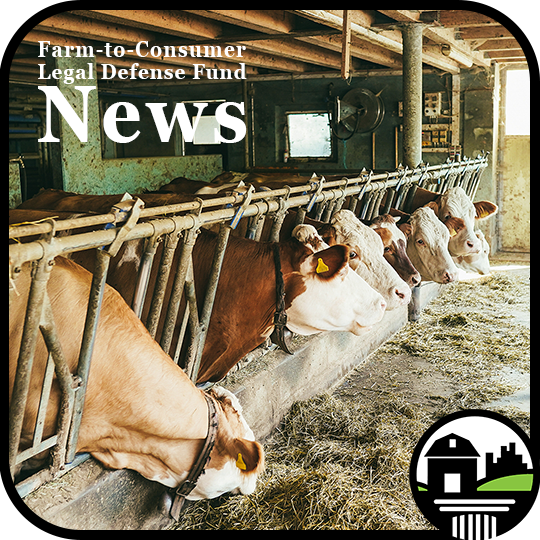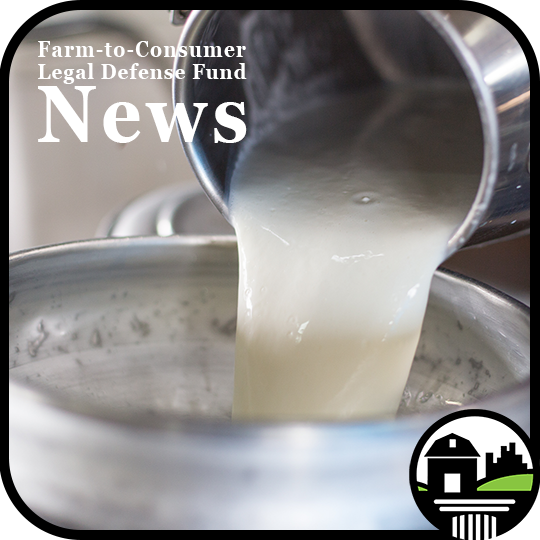Meatshare refers to the situation when a consumer purchases a live animal, a portion of a live animal, or a portion of a herd of live animals directly from the producer. Once the animal is slaughtered, the consumer receives their promised share, such as meat from a quarter or half of the animal.
Similar to a CSA, the purchase of a live animal or portion of an animal is up-front, rather than at the time the final product is provided. This means the money from the sale can support the care of the animal during its lifetime.
Why Meatshares?
The Federal Meat Inspection Act (FMIA) seeks to prevent adulterated 1 or misbranded meat and meat products from being sold and ensures that livestock are slaughtered and processed under sanitary conditions. This generally means that an inspector must be present at all times in facilities in which animal slaughter and meat processing are conducted when the resulting products are intended for human consumption.
In other words, producers must use USDA meat inspection facilities to sell meat across state lines. Producers may use state inspection facilities to sell meat in intrastate commerce.
Amendments to the FMIA in 1967 created specific exemptions from the requirement that an inspector be present during slaughter and allowed the “uninspected” slaughter of meat animals subject to certain conditions.
The two key exemptions are personal use and custom exempt.
The Personal Use Exemption
This exemption allows the slaughter and processing of livestock when it is performed by the owner of the livestock and used only for the private use of the owner who raised the livestock, members of the owner’s household, and the owner’s nonpaying guests and employees.
The federal rules further govern the personal use exemption and states may adopt those standards or set their own restrictions on whether the on-farm slaughter may be conducted by the new owner of the animal, only by the producer who raised the animal, or some combination of the two. The rules may also further detail on whose property (the new owner’s or producer’s) the slaughter may take place. We can provide guidance to our members as to exactly what is allowed in their state.
The Custom Exemption
This exemption allows a custom exempt operator to slaughter livestock belonging to someone else. The resulting product may only be used in the household of that owner, by the owner, and members of the owner’s household, non-paying-guests, and employees. Although federal registration by the custom exempt operator is not required, local or state licensing generally must be obtained.
1 Adulteration occurs when another substance, such as chemicals or pesticides, is added to a food product.
While the meat products that have been produced under this exemption cannot be sold to a non-owner or donated, generally, there may be more than one owner of the live animal. State or local rules may restrict this ability so it’s important to understand what is acceptable.
Bill of Sale
Where the arrangement is not prohibited, a consumer may purchase a live animal or a portion of a live animal from a producer and have the producer arrange for the animal to be slaughtered and processed by a licensed custom exempt operator. Ownership of the animal must be established before slaughter.
A custom exempt operator generally works out of a brick-and-mortar facility, but mobile slaughter units are also allowed and used on-farm/ranch in many states.
The purchase of a portion of a live animal is represented by a written Bill of Sale, through which the new owner pays the farmer/rancher a fee to obtain partial ownership of the animal and is then entitled to a portion of the meat harvested from that animal. That exchange of consideration must occur in order to establish a true acquisition of an ownership interest. The BOS sets forth some basic details about the location and size of the animal, the and the cost of each ownership interest.
Meatshare Agreement for Herds
In some states, owners may purchase an interest not simply in an animal but in a herd. In this case, the BOS sets forth basic details about the location and size of the herd, the kind of animals in the herd, and the cost of each ownership interest.
A herd can only be comprised of one type of animal (i.e. cow, goat, etc.), therefore, a separate BOS is needed for each type of animal. A Meat Share Agreement, which sets forth the rights and responsibilities of the farmer/rancher who will care for, maintain, and process the animal and/or herd, as well as the rights and responsibilities of the animal owners, may also be needed. We can consult with you about your needs and the requirements in your state.
FTCLDF Meat Bill of Sale Preparation Process
When a member expresses a desire to sell live animals and have them slaughtered and processed on behalf of the new owners, the matter is assigned to a member of our staff and the member is asked to complete a questionnaire seeking basic details about their farm, herd size, etc., which will assist us in drafting the necessary documents.
Drafts are then sent back to the member for their review and, generally, a call is set up with the FTCLDF staff member to walk through the document(s), make any necessary revisions, and answer any open questions.
Once the drafts are in good form, the document(s) are generally sent for a final legal review to local counsel with whom we partner in the state where the member resides.
Because our staff attorneys are not licensed to practice in every state, these partners help us ensure that the agreements are fully compliant with local regulations, and state meat inspection and contract laws. There is generally no additional cost to the member for this review.
Once local counsel has completed their review, the agreements are finalized and sent back to the member for their use.
